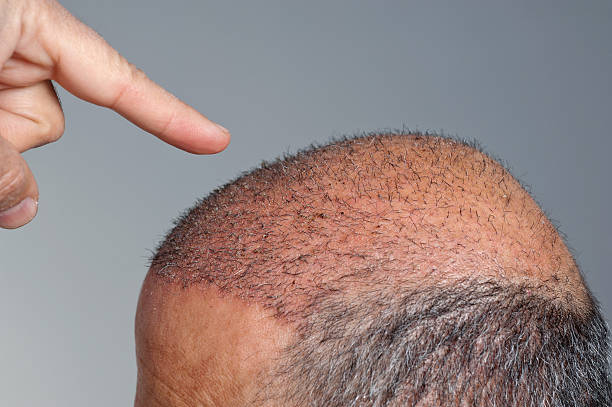What US Seniors Should Know About Getting a Hair Transplant in Turkey
As hair loss becomes more pronounced with age, many American seniors are exploring international options for hair restoration procedures. Turkey has emerged as a leading destination for medical tourism, particularly for hair transplant procedures, offering advanced techniques and significant cost savings compared to US-based treatments. Understanding the key considerations, from financial implications to travel logistics, can help seniors make informed decisions about pursuing hair restoration abroad.

How Hair Transplant Costs in Turkey Compare to US Prices
The cost difference between hair transplant procedures in Turkey and the United States represents one of the most compelling reasons American seniors consider medical tourism. In the US, hair transplant procedures typically range from $4,000 to $15,000, depending on the technique used and the number of grafts required. FUE (Follicular Unit Extraction) procedures, which are highly popular among seniors due to their minimally invasive nature, often cost between $8,000 and $12,000 in American clinics.
Turkish clinics offer the same FUE procedures for significantly less, with prices typically ranging from $1,500 to $4,000, including comprehensive packages that often cover accommodation, airport transfers, and post-operative care. This substantial price difference stems from lower operational costs, favorable exchange rates, and Turkey’s strategic positioning as a medical tourism hub.
The quality of care in reputable Turkish clinics often matches or exceeds international standards, with many facilities holding JCI (Joint Commission International) accreditation. Turkish surgeons frequently have extensive experience, performing hundreds of procedures monthly, which can translate to refined techniques and better outcomes for patients.
Factors That Influence Pricing for Hair Restoration Abroad
Several key factors determine the final cost of hair restoration procedures in Turkey, and understanding these variables helps seniors budget appropriately for their medical journey. The number of grafts required significantly impacts pricing, with most clinics charging per graft or offering package deals for specific ranges.
The chosen technique also affects costs, with FUE procedures generally commanding higher prices than older FUT (Follicular Unit Transplantation) methods. However, FUE’s advantages, including faster recovery times and minimal scarring, make it particularly suitable for senior patients who may have slower healing processes.
Clinic location and reputation play crucial roles in pricing structures. Istanbul-based facilities often charge premium rates due to higher operational costs and established reputations, while clinics in other Turkish cities may offer competitive pricing while maintaining quality standards. The surgeon’s experience and credentials also influence costs, with internationally recognized specialists typically commanding higher fees.
Package inclusions vary significantly between providers, affecting overall value propositions. Some clinics offer all-inclusive packages covering accommodation, meals, transportation, and follow-up consultations, while others charge separately for these services. Seniors should carefully evaluate what’s included to accurately compare total expenses.
| Clinic | Location | Average Cost (USD) | Package Inclusions |
|---|---|---|---|
| Acıbadem Healthcare Group | Istanbul | $3,500-$4,000 | Hotel, transfers, consultation |
| Memorial Healthcare | Istanbul | $3,000-$3,800 | Accommodation, follow-up care |
| Medicana International | Ankara | $2,500-$3,200 | Hotel, airport transfer, medications |
| Private Koru Hospital | Ankara | $2,200-$2,800 | Basic accommodation, transport |
Prices, rates, or cost estimates mentioned in this article are based on the latest available information but may change over time. Independent research is advised before making financial decisions.
What to Consider When Planning Medical Travel to Turkey
Planning a medical trip to Turkey requires careful consideration of multiple factors that can significantly impact the overall experience and success of the procedure. Seniors should begin by researching and verifying clinic credentials, ensuring chosen facilities maintain international accreditation and employ board-certified surgeons with extensive hair transplant experience.
Travel logistics present unique challenges for senior patients, particularly those with existing health conditions or mobility limitations. Flight duration, typically 10-14 hours from major US cities to Istanbul, can be physically demanding. Seniors should consult their primary care physicians before traveling and consider arriving a few days early to adjust to time zone differences and recover from jet lag before the procedure.
Post-operative care requirements necessitate extended stays in Turkey, typically 7-10 days for initial healing and follow-up appointments. Seniors should arrange comfortable accommodation near their chosen clinic and ensure they have reliable communication channels with medical staff. Many clinics provide 24/7 support services, but language barriers can sometimes complicate communication.
Insurance considerations are crucial, as most US health insurance plans don’t cover elective procedures performed abroad. Seniors should investigate medical travel insurance options that cover complications or emergency treatments during their stay. Additionally, they should understand the clinic’s policies regarding revision procedures or complications that might arise after returning home.
Documentation requirements include ensuring passport validity for at least six months beyond travel dates. US citizens don’t require visas for stays under 90 days in Turkey, simplifying travel preparations. However, seniors should carry comprehensive medical records, including current medications, allergies, and relevant health history to share with Turkish medical teams.
The cultural and environmental differences in Turkey, while generally welcoming to medical tourists, may require adjustment periods for some seniors. Most major clinics in medical tourism hubs employ English-speaking staff, but basic Turkish phrases can be helpful for daily interactions outside medical facilities.
Follow-up care coordination between Turkish clinics and US-based healthcare providers requires advance planning. Seniors should establish relationships with American dermatologists or hair restoration specialists who can provide ongoing monitoring and address any concerns that arise after returning home.
This article is for informational purposes only and should not be considered medical advice. Please consult a qualified healthcare professional for personalized guidance and treatment.




